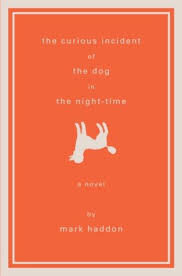Week 1 & 2 Syllabus: August 27
WELCOME TO NEW TRIER HIGH SCHOOL ENGLISH. Each weekly syllabus will begin with a short paragraph that describes where we’ve been, what we’ve learned, where we’re headed, what’s coming next, and what’s the big picture. In the first two weeks, we will establish routines—writing while you read, how to take notes during discussions, using Squarespace and Canvas. I will also include reminders—such as this: bring your copy of Curious Incident to class starting next week. If you haven’t finished it, get it read by next Friday, August 30
WEDNESDAY: Anchor Day Schedule
Lecture: How to read a poem.
Reading and annotating, “About Competition.”
HW: re-read the poem, and write notes on the poem: a) What do I notice? and b) What does it (the poem) mean?
FRIDAY, August 23
Reviewing poetry rules.
Discussion of poem (practicing routines, pre-post discussion writing, note taking)
Picture day.
Time permitting, writing a paragraph. (What does Bukowski want us to learn about competition and the secret to success?)
HW: If you have not done so, finish reading Haddon’s novel by class on Tuesday.
TUESDAY, August 27
Introduction: Meet Ms. Craig!
Finishing our review of classroom expectations.
Writing your paragraph about the poem, “About Competition”.
Posting your paragraphs onto Squarespace.
HW: Finish reading The Curious Incident. Submit your signed course expectations on Canvas and your paragraph on Squarespace. Make sure you paragraph is posted into Squarespace!
WEDNESDAY, August 28
Making sure everyone turned in class expectations using Canvas, and everyone posted your paragraph using Squarespace.
Voting on the three BEST paragraphs in class.
We will read an interview with the author of our summer read, and practice marking vocabulary.
FRIDAY, August 30
Returning to our paragraphs on the poem: reading with a critically constructive eye.
Revising paragraphs, and posting NEW version of your ¶
Second half of class, we will shift toward another non-fiction handout, this one a collection of first-person essays written by people with autism about their life experience (and one poem, as well).
We will read these aloud, in small groups.
Ending the day with an annotation technique that you will use to re-read and re-annotate: TOUGH QUESTIONS.
HW: Read the selections from “Voices in Autism,” annotating and practicing the note-taking techniques covered in class (tough questions, opening signals, circling vocabulary).








